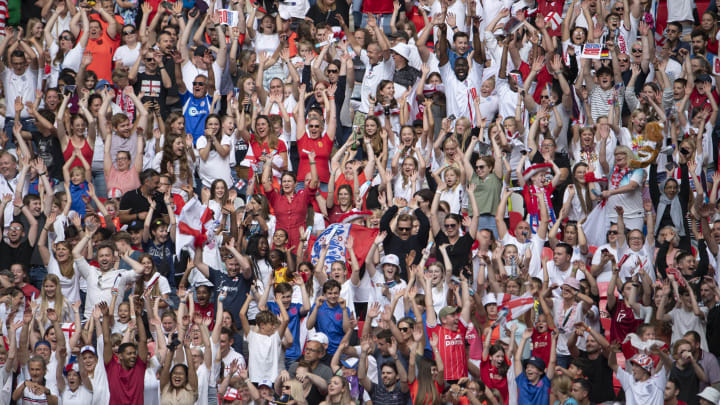Why women's football in England still has work to engage the next generation

New research has revealed that inner-city teenage girls are being left behind in football in England despite the Lionesses' historic Euro 2022 victory last summer.
According to a study conducted by Football Beyond Borders, 63% of teenage girls are unable to name any of the Lionesses, while 25% of them have never watched a women's football game. Additionally, 67% of teenage girls don't follow any women's football players on social media.
Football Beyond Borders is an education charity that works with young people who are passionate about football but disengaged in their education. The programme helps them acquire the skills and grades needed to transition successfully to adulthood. The charity's programme has aided thousands of girls to remain in school, discover their passions, and grow in confidence.
The report also revealed that last summer's win, for all the record breaking numbers attached to it in terms in in-stadium attendance and TV audiences, had little impact on inner-city teenage girls' engagement with women's football.
The findings of the study have prompted the charity to urgently fundraise to save the crucial legacy of England's Euro 2022 triumph and promote participation and engagement in women's football. The charity is seeking to raise enough money to fund its programmes before the end of the upcoming World Cup in Australia and New Zealand.
“I’m not surprised, and I don’t know if that’s because of my background and still being real to where I come from and having conversations, but it just doesn’t surprise me,” former England and Arsenal player Alex Scott said on the findings.
“I was so outspoken and passionate with Ian Wright during the Euros because I know that I had to overcome a lot to get into the space that I am in now.
“Teenage Alex was lucky, because I signed for Arsenal when I was eight, so then all my focus was on not letting the opportunity go…Everyone knew I was already signed to Arsenal, so it was cool right?”
“There was a narrative, publicly and nationally, that the Lionesses had inspired a generation, that everyone was going to be watching more football, that WSL attendances were up. All these things are true, and we’ve made huge, huge progress. This report does not deny any of that progress, but it does zoom in on a voice that often isn’t captured in the national media, and that’s the voice of a teenage girl living in an inner city," said Ceylon Andi Hickman, Football Beyond Borders’ head of brand.
“Focusing on participation and how much more girls are playing misses that emotional thing that we all know, as football fans, is so important to our identity. We really wanted to understand what the picture was for our girls, and we wanted to understand what we could do now.
“What was really interesting, and what we dug into, is that men and boys gatekeep culture,” said Hickman.
“In schools, they dictate the hierarchy of cool and often at the top of that hierarchy is men’s football. We workshopped, and the player whose name came up the most was Bukayo Saka. He’s peak cool, he’s positioned in the right places, he’s doing the right collaborations, and he will dictate what is cool in schools. Unfortunately, girls and women aren’t on that hierarchy of cool.
“When women’s and girls’ football is seen as the sort of ugly little sister of the men’s game, it becomes really difficult if you’re a teenage girl in school who really does love women’s football and you do play. It is hard to be a teenager. And it is even harder to be a teenage girl.
“The adolescent brain is really malleable around ages 13 to 14. They are hardwired for peer approval, the thing that matters most to them is whether their friends like them. So if the thing that means you’re cool in school is men’s football and everything associated with it, and women’s football makes you uncool, if you love women’s football, it’s really hard to embrace that. That was me at school. It’s having a dual identity, you are forced to have one foot in and one foot out.”